Autumn has officially arrived in France. The clocks have gone back, the air is cooler, and whilst grey, rainy days have set in, we can still look forward to the occasional burst of sunshine. November may be one of the shorter months, but before preparations for the end-of-year festivities begin, there are several important matters to keep in mind
Financial update November 2025 | France
By Katriona Murray-Platon
This article is published on: 9th November 2025

Although the taxe d’habitation has become a thing of the past for most French residents, it still applies to owners of second homes in France. Over four million households are liable for either the Taxe d’Habitation sur les Résidences Secondaires (THRS), the Taxe sur les Logements Vacants (TLV), or the Taxe d’Habitation sur les Logements Vacants(THLV).
The Taxe d’Habiation statements should now be available in your online account on impots.gouv.fr, where you will also find the payment details and deadlines.
On 25th October, the French deputies voted to amend the draft finance bill that was proposing to freeze the income tax rates, instead voting in favour of re-establishing indexation in line with inflation which increases current tax bands by 1.1%. Below is a table showing the 2025 thresholds compared with the proposed thresholds for 2026.
| 2025 income tax thresholds | Proposed tax thresholds (increased by 1.1%) for 2026 | Income tax rate |
| Under €11,497 | Under €11,623 | 0% |
| Between €11,498 and €29,315 | Between €11,624 and €29,637 | 11% |
| Between €29,316 and €83,823 | Between €29,638 and €84,745 | 30% |
| Between €83,824 and €180,294 | Between €83,746 and €182,277 | 41% |
| Over €180,295 | Over €182,278 | 45% |
Once the finance law is officially adopted at the end of the year, I will confirm these thresholds.
If you are subject to Wealth Tax on Property (IFI) and the amount due is €300 or less, this must be paid by 17th November by cheque, cash or bank card or by the 22nd November if you pay online. If the amount is more than €300, it must be paid online via the impots.gouv.fr website.
By now, you should have received your income tax statement and paid tax due. If you have discovered any errors or miscalculations, please correct them as soon as possible as after 3rd December 2025 you will no longer be able to submit an amended tax return on the impots.gouv.fr website; any corrections after this date must be submitted in paper form.
If you have a PEL account which was opened between 2011 and 2015, your bank will automatically close it and transfer the funds to another savings account. PELs opened since 1st March 2011 can be held for a maximum of 15 years, whereas the PELs opened before this date can remain open indefinitely. According to the Banque de France, the average balance of a PEL account is €25,017, with around 12% of such accounts exceeding the maximum capital limit of €61,200. These accounts are not term accounts and should only be used if you plan to purchase a property or carry out renovations to your property.
If you do seasonal lettings, you will have received an email from the tax office reminding you that the tax rules have changed in 2025. For “meubles de tourisme non classés” if your income in 2023 and 2024 was more than €15,000 you can no longer stay as micro-BIC. The income that you received will be under the “régime réel” and will require the assistance of an accountant. You should contact your tax office for more information.
Urssaf also sent an email to remind those who earned over €23,000 from their season lettings that they have to pay social security contributions on this income and not social charges like other landlords. Depending on your turnover, you can opt for the micro-social regime at either 21.2% (for meublés de tourisme non classés) or 6% (for meublés de tourisme classés). From 2027, website-based business as Airbnb and Arbitel will take the social contributions directly at source.
If you have any questions on the above or any other matters, please do get in touch. I am available for online meetings or face to face meetings throughout November, so if you have any questions about your finances, please do contact me to arrange a free, no obligation, meeting.
Financial update France October 2025
By Katriona Murray-Platon
This article is published on: 6th October 2025
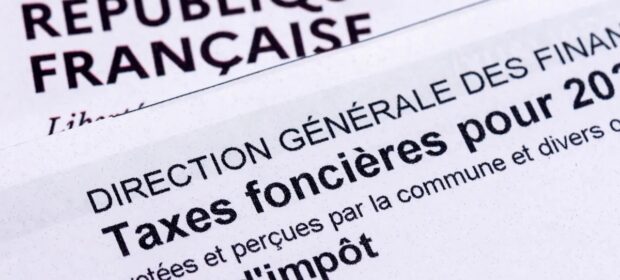
France has a new prime minister (again), actually – no we don’t – another one gone! However, time is of the essence to ensure that the Finance Law is approved and passed into law by the end of the year. Prior to the government reshuffle, there was a plan to freeze the tax rates at their current level and not adjust them in line with inflation as has been done in the past few years.
There was also a plan to set the 10% abatement on pensions at a maximum of €2000 per pensioner rather than the current maximum of €4399. Whether these measures will be adopted into law by the end of year, only time will tell.
According to a study published by the French National Statistics Body (INSEE, Focus 354), in 2024, 78% of French residents have a Livret A Savings account, compared with 42% who have an assurance vie and 27% that have a property savings plan (PEL/CEL). Only 19% of French residents have a retirement account (PER) and only 16.5% are part of an employer’s savings plan. Clearly the French prefer to keep their investments in assurance vies rather than in share accounts since only 9.8% of French residents have PEAs and only 9.6% have ordinary share accounts (compte titres). With the interest rate for the Livret A now at only 1.7%, this means that a large amount of French savings is not protected from inflation. Since money in an ordinary share account is subject to both tax and social charges, it is more tax efficient to invest in either an assurance vie or a PEA.

After another hot and dry summer, which has affected ground conditions in many areas, a decree has been published on 6th September 2025, which grants a subsidy to property owners in 11 departments to diagnose and remedy the potential damage of clay soil shrinkage and expansion.
This financial assistance could cover up to 90% of the costs up to a maximum amount of €2 000 for a “vulnerability diagnosis” of the property and up to 80% of the work costs up to a maximum amount of €15,000. Both will be means tested.
This autumn child care benefits (“complement de libre choix du mode de garde” or CMG) are changing. The CMG is a family benefit which covers part of the costs of a child being looked after by a carer (assistante maternelle) or at home by a nanny employed directly by the parents. This benefit is being amended in order to better assist families in certain situations. From 1st September 2025, the amount of this benefit will also change. In particular, single parents can now receive CMG until their child is 12 years old instead of 6 years old previously. From 1st December 2025, for parents with shared custody of their child, each parent can receive CMG under certain conditions. The calculation of the amount of benefits will be done automatically by Urssaf on the Pajemploi website and families will be informed of the new amount of benefits they will receive in the September 2025 declaration.
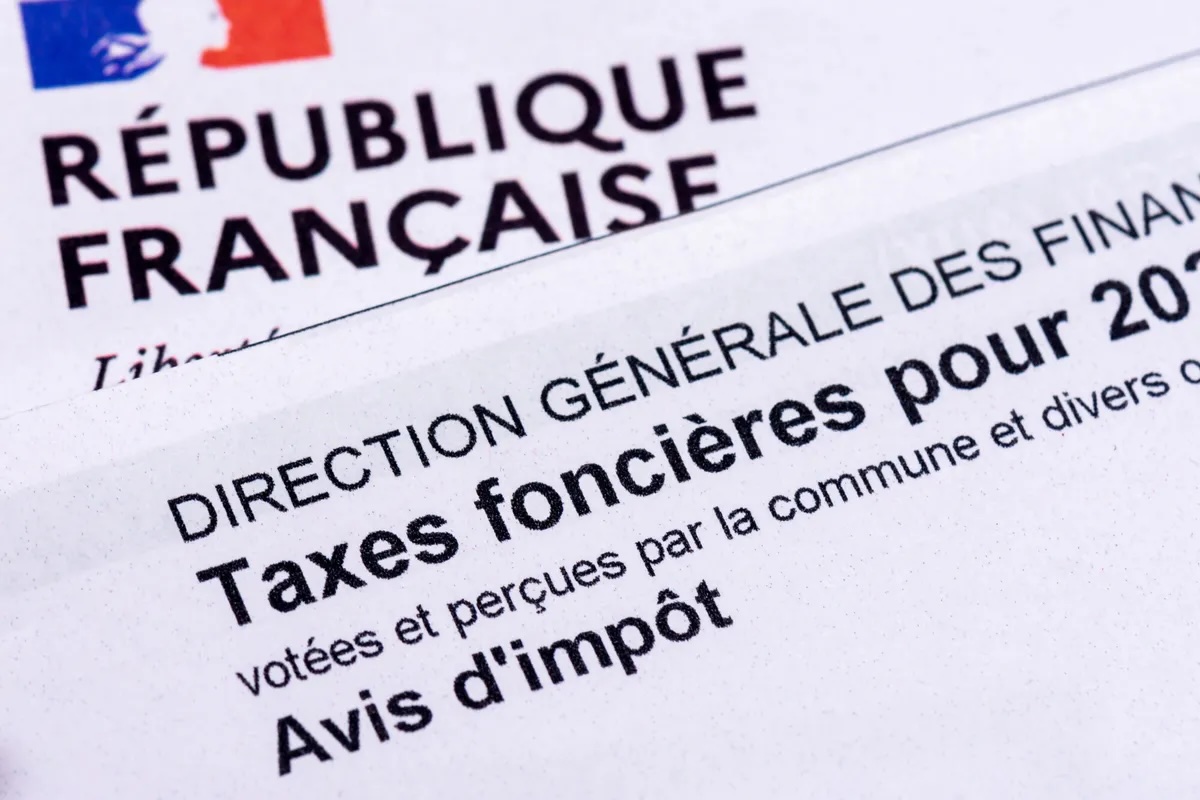
The Taxe Foncière statements are now available on your online account on the impots.gouv.fr website. You have until 15th October to pay the tax or20th October if you pay online. If you are already paying your taxe foncière monthly and the amount is higher than last year, then you will pay your regular amount on 15th October and the excess on 15th November.
Most people will have noticed an increase in their tax foncière of 1.7% due to the annual revaluation of the rental value which is the basis on which this tax is calculated.
There may also be an additional increase if your local council has voted for one. Other subsidiary taxes such as the tax to manage aquatic areas and the prevention of flooding may also have increased in certain areas. As for the tax for the refuse collection, a table produced by the Environmental and Energy efficiency (Agence de l’environnement et de la mâitrise de l’energy) published in Le Monde newspaper on 25th August showed that more than half of local authorities charge more than what it actually costs them to collect and treat the rubbish. If your tax foncière seems excessively high this year, it may be worth raising this issue with your local council.
If you have any questions on your financial situation in France, or know someone who does, please do get in touch and I would be happy to arrange a free, no obligation, phone or video call.
Financial update in France – September 2025
By Katriona Murray-Platon
This article is published on: 4th September 2025

After a long sunny summer it is nice to get properly back to work now that my children have returned to school. It is also nice to have had some days of rain since the garden was in desperate need of it.
Over the summer you should have been notified that your tax statements are available online. If you paid too much tax this was reimbursed on 25th July. If you are not paying your tax by direct debit from your account, you must pay your tax by 20th September. If you have provided your bank details to the tax office and you have more tax to pay, your monthly payments will increase from 15th September and, if you have more than €300 to pay, you will have to pay off this amount over the next four months on 25th September, 25th October, 25th November and 29th December. If you have less than €300 to pay, it will be taken out in one payment on 25th September. Please do check your tax return as mistakes often occur.
Most people don’t notice the mistake until they are asked to pay an unusually high amount of tax and then they realise that other mistakes were made in previous years. If you do notice something wrong, you must first pay the tax that is requested on the statement and then submit an amended return. Any tax overpaid will be repaid once the new statement is produced.
As announced in my previous Ezine, the interest rates for the Livret A and LDDS savings accounts fell from 2.4% to 1.7%, the LEP interest rate fell from 3.5% to 2.7% and the interest rate for the CEL account fell from 1.5% to 1.25% as from 1st August 2025.
The markets continued to perform well in July and August, with US equities hitting record highs. This was in part due to concerns over tariffs diminishing, as numerous trade deals were signed leading up to the Trump administration’s 1st August deadline. Although the Trump administration considered these deals frameworks, including deals with Japan, the European Union (EU) and South Korea, as a political victory, they were vague on details and lacked clarity. However the markets appear to be less reactive over such tariffs, at least for the moment, which may indicate that volatility will not be as severe as it was in April. Strong corporate earnings and solid jobs data also buoyed equities.
UK inflation accelerated to 3.8% in July, the highest level since January 2024, while Eurozone inflation held steady at just 2%. This marks the widest gap between the UK and its European peers in nearly two years. Meanwhile the US dollar rose 3.2% in July, its best month since 2022, as the Fed indicated it was still in no rush to cut rates. With inflation above the Fed’s 2% target, and the full impact of tariffs on inflation unknown, the Fed seems to be taking a ‘wait and see’ approach.
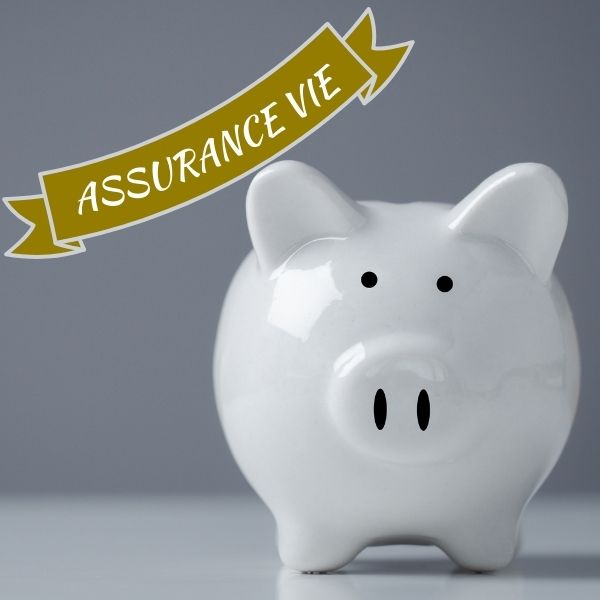
For those with Pru assurance vies or those thinking of investing in a Pru Assurance Vie there is good news as, on Tuesday 26th August 2025, the Prudential Assurance Company (PAC) board reviewed the Prufund Expected Growth Rates (EGR) as part of the quarterly review process.
The Prufund aims to help customers grow money over the medium to long term ( 5 to 10 years) and protect customers from some of the short-term ups and downs of the markets by using the unique established smoothing process.
The Expected Growth Rate (EGR) is the forward looking element of the Prufund smoothing process. Pru announced that the EGRs for the GBP versions of Prufund were increased by 0.1%. So the Prufund Growth GBP is now 7.4% and the Prufund Cautious GBP is now 6.7%. The EGRs for all the Euro and USD versions of the Prufund remain unchanged. The Unit Price Adjustment (UPA) part of the smoothing process, which is a backward looking element, and which is formulaic and non-discretionary, is also reviewed quarterly. This quarter there was an upward UPA for the Prufund Growth USD version of 3.55%. There were no Unit Price Adjustments in the other PruFunds.

Going into the Autumn with varying inflation levels across key economies, continuing uncertainty with tariffs and ongoing geopolitical concerns in the Middle East and Europe, all which impact market performance, it is as ever important to maintain a well-diversified long-term investment approach, rather than reacting to short-term market swings.
With careful planning, and appropriate advice and reassurance, our clients can navigate through periods of volatility and uncertainty.
If you have any questions on the above or any other matters, please do get in touch to arrange a time to discuss your personal financial situation.
French financial update June 2025
By Katriona Murray-Platon
This article is published on: 7th June 2025

Although the official beginning of Summer is not for a few weeks, these last few weeks of lovely sunny weather already makes it feel like summer is here.
Tax season is almost at a close. Those in departments numbered over 55 have until Thursday 5th June to finalise their tax declarations. I hope you managed to submit your returns in time.
If you now realise that you missed out some income or misdeclared income, you can still amend your tax return on the online webpage. Please note however that as the return has been filed by the deadline, this will generate a tax statement and any tax due on this first statement must be paid promptly. If you amend your return on the website now, this will generate a second statement which may request more tax from you and therefore adjust your monthly payments or will result in a tax rebate. Whichever the case, you must pay the first tax statement first and wait until the second statement is issued.
In June there is still one more declaration to complete if you are a trustee of a trust for which one of the beneficiaries, settlors or trustees are French resident. A trust must also be declared if it contains French based assets.
Although Trusts do not exist under French law, the French courts have accepted that Trusts set up in other countries can have effects in France (Paris Court of Appeal decision, dated 10 January 1970, Epoux Courtois and others of Ganay) provided that they have been set up in compliance with the laws of the country in which it was set up and that they don’t contain any provisions that go against French public policy (ordre public) especially as regards the réserve heriditaire (mandatory heirs rights).

Although generally, if it says Trust in the document, then it needs to be declared, there are some exceptions such as Unit Trusts, a company trust, or an investment trust. Also pension trusts do not need to be declared in the annual trust declaration provided the trustees of these pension trusts are subject to the law of a State which has signed an agreement with the French state to provide administrative assistance in the prevention of fraud and tax evasion (https://bofip.impots.gouv.fr/bofip/7886-PGP.html/identifiant=BOI-DJC-TRUST-20220330). This includes pension trusts in Malta.
There are two declarations that need to be done, TRUST 1 (https://www.impots.gouv.fr/formulaire/2181-trust1/declaration-de-constitution-de-modification-ou-dextinction-dun-trust), if you have never declared the trust before or it is a new trust and TRUST 2 (https://www.impots.gouv.fr/formulaire/2181-trust2/declaration-annuelle-de-la-valeur-venale-au-1er-janvier-des-biens-droits-et- ) which is the annual trust declaration which must be done every year. Unfortunately, you cannot submit these forms online like you can when you do your income tax return, they must be submitted in paper form and sent to the Non-Residents tax office in Noissy-le-Grand before 15th June every year.
For those with Pru Assurance Vies or those thinking of investing in a Pru Assurance Vie there is news as, on Tuesday 27th May 2025, the Prudential Assurance Company (PAC) board reviewed the Prufund Expected Growth Rates (EGR) as part of the quarterly review process. The Expected Growth Rate (EGR) is the forward looking element of the Prufund smoothing process. Pru announced that the EGRs for all the offshore versions of Prufund remain unchanged. The Unit Price Adjustment (UPA) part of the smoothing process, which is a backward looking element, and which is formulaic and non-discretionary are also reviewed quarterly. This quarter there is a negative UPA for the Prufund Cautious fund in GBP of – 2.3%.
At the beginning of June, I shall join some of my colleagues and some of our product providers for our adviser meeting in Paris. It will be interesting catching up with my colleagues and also hearing our providers views on the markets in what has been a very interesting first part of the year!
After all the May bank holidays, I am looking forward to having some normal working weeks and getting lots of work done before the summer holidays. If you have any questions or would like to organise a meeting to discuss your finances, please do get in touch.
Financial update May 2025 – France
By Katriona Murray-Platon
This article is published on: 4th May 2025

May is when France comes out to play because the weather is warmer and the days are getting sunnier. However it is also the month when, if you haven’t already begun your tax declaration, you need to at least make a start on it over the next few weeks. The first deadline for filing the tax return is the 20th May for the paper returns which you will need to complete if this is the first year doing a tax return and you don’t have a tax number or login details to do it online.
The other deadlines for submitting both your income tax return and where applicable, your Wealth Tax return, are as follows:
| DEPARTMENT | DEADLINE |
| 0 to 19 | Thursday 22nd May 2025 at 11.59pm |
| 20 to 54 (including 2A and 2B) | Wednesday 28th May 2025 at 11.59pm |
| 55 to 974/976 | Thursday 5th June at 11.59pm |
| Non residents | Thursday 22nd May 2025 at 11.59pm |
If you do not at least attempt to get some sort of declaration submitted by these deadlines a 10% penalty will apply to the amount of taxed owed. Luckily, Spectrum has a free tax guide which you can find HERE. If you have any questions on this guide, please do get in touch.
I know that it may seem daunting and believe me, even though I was a tax adviser and used to do hundreds of declarations for my clients, I still find doing my own quite a challenge! So to help you, here are my ten top tips:
- HAVE YOUR FIGURES READY– Make sure that you know what kinds of income you need to declare and what the total annual figures are, whether they are taken off a bank statement or a tax certificate.
- KNOWING THE EXCHANGE RATE: The Banque de France average exchange rate for 2024 is €1.18 to £1. This is also the rate used by the Connexion newspaper. Make sure you have all your foreign income figures converted into Euros ready to input into the tax form.
- CHECK THE FIGURES ALREADY ENTERED ON THE TAX FORM – French source income (pensions, salaries, French bank income etc) should already be entered on the tax form. Whilst this information is generally correct, it is still worth checking these figures with any tax certificates issued by the relevant body or your December 2024 payslip.
- FOREIGN INCOME ANNEXE – I have noticed this year that whilst some annexe forms such as the 3916 are automatically ticked and carried over from the previous year, the 2047 for foreign income is not. You will therefore have to tick this box in the ANNEXE section of the online form to make this form appear. You must enter all foreign income received in 2024 on this form and then make sure that it is carried over or inputted again into the main 2042 tax form.
- CHECK THAT ALL THE DIFFERENT TYPES OF INCOME ARE TICKED – This applies on both the 2047 form and the main tax form (2042) as when you then click to the next page you will only be shown the boxes and pages that correspond to the income selected on the earlier page. So if you are only declaring pensions and bank interest, only those pages will appear. If you have other income like rental income or business income, you need to tick the relevant box for the page to appear. You can also look at the declaration that you did last year under the “documents” section on the main page and see what boxes you completed last year, then you can use the “search box” option.
- REMEMBER THE BANK ACCOUNTS AND UPDATE THE ASSURANCE VIE AMOUNTS – All non-French accounts must be declared on the 3916 form. This should automatically appear as a form if you declared accounts last year and boxes 8TT and 8UU were ticked. Any accounts you declared last year can be carried forward but if there are any changes, any new accounts or closed accounts, you must provide this information. Your assurance vie information will also be carried forward from last year but you will have to check the letter that was sent to you by the assurance vie provider in order to enter the value of the policy as at 1st January 2025.
- DON’T FORGET YOUR TAX CREDITS – If you have any domestic help or services paid via CESU, the amounts declared will be already entered on the tax form, you just need to check that these are correct. However if you have had any other home help (cleaners; gardeners, child care, after school lessons etc) from private companies or associations, these amounts are not always automatically entered. The company or association should have sent you a tax certificate for last year so you will need to enter that amount in the tax credit section. If you have a child in high school, sixth form or university, don’t forget to tick the box to get the (albeit small) tax reduction.
- RETIREMENT CONTRIBUTIONS – if you work in France and want to contribute to your pensions, it is a good idea to open a PER account. If you have already made contributions to a PER in 2024, you can deduct a percentage of these payments from your taxable income. The amount that can be deducted or carried over from previous years is shown on your tax statement. However to deduct these amounts from your tax you will need to reenter these amounts in the correct box.
- CHARITABLE DONATIONS – If you have made any charitable donations in 2024 you should have received a tax certificate from the charity with the amount to deduct. This may have been sent by email and fallen into your spam box so it is important to find the email or if it has been sent by post to keep the tax certificate in your tax file. If you still can’t find it you can contact the charity to send you another copy.
- NOBODY IS PERFECT (especially not me ;)) — you can start your declaration and go back to it later. You can do one version and then go back and change it. Once you get to the signature page which shows the tax due (this won’t appear if you have foreign income that will receive a tax credit) if something seems wrong you can go back and amend it. You can do this as many times as you like until the official deadline without it generating separate tax bills and even after the deadline provided you have submitted something before the deadline. If it gets close to the deadline it is better to declare something and sign the tax return and then correct it at a later date rather than incur a fine for late submission.

Property declaration – do you remember last year when you had do declare your properties as a separate declaration? This year you only have to declare whether there have been any changes in 2024. I noted on the online tax form that when you get to the signature page, you must tick a box saying there are no changes otherwise it will not let you sign off and send the tax return.
One of the welcome changes with the 2025 tax declaration is that couples will not be automatically taxed at the same rate but at their individual rates. This is particularly important for those paying tax at source on their pensions and salaries.
Until recently, couples were taxed at the same rate unless they opted for their individual rate which most people didn’t. The result of this was that, because women generally receive less than men when it comes to salaries and pensions, the woman was paying a disproportionate rate of tax. As from 1st September this will change and couples will automatically be taxed at their individual rate unless they opt to pay the same tax rate.
Unfortunately it is too late to contact tax advisers, tax lawyers or anyone else offering help with tax returns as they will be very busy completing the tax returns they already have, so don’t be surprised if they are not returning your calls or emails. However, with a bit of patience and perseverance it is possible to do your own tax return. If you have any questions please do get in touch and I will help as much as I can.
Financial update April 2025
By Katriona Murray-Platon
This article is published on: 4th April 2025

The clocks have gone forward, winter is officially over and the lovely sunny weather seems finally to have arrived. Spring has sprung but of course April also hails the beginning of tax season in France and the start of the new tax year in the UK, bringing with it new financial laws and measures.

The costs of buying a house in France are usually bourne by the purchaser. Most of these costs are taxes which are paid to the state, the department and the town/village (commune) but there is also the Notaire’s fee which needs to be taken into consideration. The amount taken by the department is usually around 3.8% of the purchase price but the department councils can decide to amend this rate every year and increase it by between 1.2% and 4.5% maximum. This maximum amount can then be increased by a further 0.5% to make it 5% as from 1st April 2025 and 31st March 2028 (Article 116 of the finances law for 2025, no2025-127 of 14.02.2025).Paris has already decided that this 5% rate will apply to deeds of sale signed as from 1st April. The date upon which these rates come into effect will depend on when the council notifies its decision to the tax authorities.
Some departments may decide to reduce or even not apply this rate. However first time buyers are exempt from this rate and will pay no more than 4.5%.
The measure introducing the lower VAT threshold of €25,000 has been postponed until 1st June 2025. VAT will apply to auto entrepreneurs as soon as their turnover exceeds €27,500 (if their turnover was less than €25,000 in 2024). If their turnover is less than €27,500 in 2025, the VAT will be due from 1st January 2026.
As from 2nd April, those people with EU, EEA or Swiss citizenship, must have an Electronic Travel Authorization (ETA). This will cost approximately €12 and can be obtained from the UK ETA app or the GOV.UK website.
If you need to take a taxi or ambulance to go to the hospital or return home you may have to share your journey with another patient. The aim of this measure is to reduce costs for the health care service. Two patients may be required to share a taxi or ambulance for part or all of the journey if the prescription specifies that the health of the patient would not be jeopardized by sharing the transport with someone else. However this can only apply if the detour to collect the other patient is no more than 10 km per patient and up to 30km maximum. Also the waiting time for the taxi/ambulance before or after the appointment cannot be longer than 45 minutes. This only applies for medical visits to treat certain kinds of conditions such as cancer, chronic liver failure etc. The patient can refuse to share their taxi or ambulance but will not be covered by their mutuelle and will not be fully reimbursed.
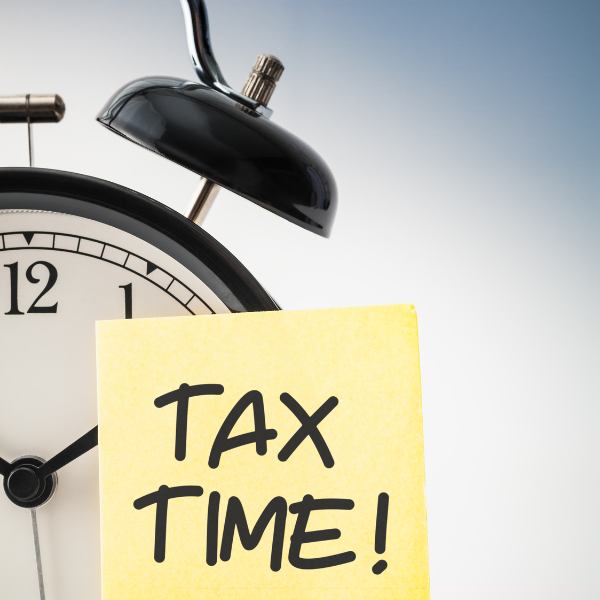
The online tax declaration service will begin from 10th April 2025. Although the tax form doesn’t change dramatically from one year to the next, there can still be small changes which will not be known until the declaration service starts after 10th April.
Also, if this is your first time doing your tax return, you will need to submit a paper return.
The downloadable versions of the forms will also be available after 10th April.
After a busy March, I am set for an even busier April with plenty of appointments in my diary. I am looking forward to driving through the beautiful French countryside and catching up with my clients. If you have any questions and would like to make an appointment with me to discuss your financial situation, please do get in touch.
Financial update in France – March 2025
By Katriona Murray-Platon
This article is published on: 6th March 2025

Even though Spring is officially a few weeks away, it certainly feels like it is in the air with the sunnier weather and flowers popping out. We have a large Mimosa tree in our garden which is full of bright yellow, fragrant flowers.
Although it’s ‘better late than never’, we now have a finance law and a budget as of 6th February. The income tax bands have been increased by 1.8% rather than the originally announced 2% as inflation is lower than anticipated.
The new tax bands are as follows:
Tax thresholds applicable in 2025 for income earned in 2024
| Under €11,497 | 0% |
| From €11,498 to €29,315 | 11% |
| From €29,316 to €83,823 | 30% |
| From €83,824 to €180,294 | 41% |
| From €180,294 | 45% |
A new tax; called the “contribution differentielle sur les hauts revenus” (CDHR), has been introduced, and will come into effect next year, for those who earn over €250,000 as an individual or €500,000 pa for couples. This is to guarantee a minimum tax of 20% on their income earned in 2025. Those tax payers who are subject to this tax (i.e. those whose income is largely exempt or subject to the flat tax of 12.8%) have to make an advanced payment of 95% between 1st and 15th December 2025. The exact amount of tax will be calculated in Summer 2026.
A parent, grandparent or great-grandparent can give €100,000 to a descendant without paying tax up until 31st December 2026, subject to certain conditions. The beneficiaries of this gift must use this money in the six months following the gift to buy a new property, or a property soon to be completed or for energy efficient renovation costs to an existing property. If the person does not have children, the money can be given to a niece or nephew. This is in addition to the usual gift allowances. The property purchased or renovated must become and remain their primary residence for the next five years. Since the gift would need to be declared through a notaire, it is important to ask them whether in your situation this allowance can be used.
You can give up to €1000 to charities which provide food, aid, or housing for people in need and get a tax reduction of 75%. Any amounts over this threshold are subject to a tax reduction of 66% up to 20% of the taxable income. The same allowance is granted for donations to charities that protect victims of domestic violence.
There has been much concern from small businesses about the lowering of the VAT threshold to €25,000. This has now been suspended whilst the tax authorities consult with professionals and the minister for the economy has said that for now micro entrepreneurs do not have to make any additional declarations. However the VAT thresholds have already been lowered in the 2024 finance law. In 2025 if your turnover exceeds €85,000 for sales/puchases or lettings or €37,500 for services, you have to charge VAT in 2026 or even in 2025 if you have gone over the threshold of €93,500 or €41,250 respectively.
If you have any questions on any of the matters mentioned above or would like to discuss your own financial situation please do get in touch.
French financial update February 2025
By Katriona Murray-Platon
This article is published on: 3rd February 2025
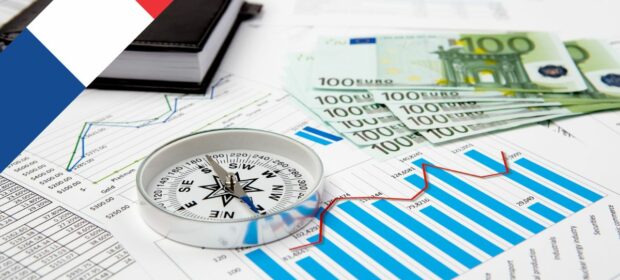
In January at our annual conference in Casablanca it was nice to escape the cold, dark mornings of France and get a bit of sunshine. It was an interesting and informative conference thanks to our product providers bringing their various observations and opinions about investment markets and geopolitical events.
On 20th January, just as we were arriving at our conference, Donald Trump was sworn in again as the American president. He wasted no time getting to work with executive orders. On day two of our conference, Rathbones Asset Management presented their views on what we can expect from Trump 2.0. The phrase “Drill, baby, drill” was mentioned more than once – like his first term in office, we can expect (to the extent that Donald Trump’s decisions can be predicted) that he acts to protect American interests and American businesses with tax cuts and less regulation, which in turn is likely to be good for the US economy. This time around it looks like he has his eye on imposing tariffs on everything.
There was much talk about how well the US market had done last year. However, Rathbones also highlighted the following:
- 29% of the global stock-market (as measured by the FTSE All World index) is now in the technology sector, and of this, 19% is concentrated in just seven companies
- 65% of the FTSE World index now comprises US companies
- the top 10 holdings in the FTSE World index account for 23% of the index’s total value
So, whilst markets (and investors’ portfolios) have performed well, the dominance of the “Magnificent Seven” is a concern for some investors.

On the subject of risk, RBC Brewin Dolphin gave us a fascinating presentation on this important aspect of investment management. We often associate risk with the possibility of something bad happening if we take a certain action. Whereas is in practice there is risk in everything we do and everything we don’t do. Over the past few years, the negative impact of inflation on the value of our cash has been significant. For the long-term investor, though, with sensible planning, there is the opportunity to protect capital from erosion by inflation and to achieve strong ‘real’ returns.
It is important to review your appetite for risk regularly. The risk of being too cautious in your investment choices, for example, may lead to disappointment in the years come.
On day three of our conference, which was the second day of Donald Trump’s second term in the White House, he had already introduced executive orders and other measures, which meant that our presenters, Evelyn Partners and LGT Wealth Management, had fresh insights for us. This is likely to be an ongoing theme of Trump 2.0 – there will be lots of change, there will be lots of noise, there may be action that may need to be reversed for not complying with the law and/or the US Constitution, and there may be controversy. However, as controversial as Donald Trump is, and regardless of your personal views on his character, the consensus is that he will be good for the markets.
Prudential International told us about their funds’ positive performance in 2024, how inflation seems to be easing and how property values are showing signs of stability. In 2024 Prudential completed investments in two French forward living projects, notably Clichy Rue du 8 mars, in Paris, and Aurientis, a senior living development in Aix-en-Provence. They now have their sights set on projects on Rue de le République in Lyon, Leadenhall in London and Haymarket in Edinburgh, which are scheduled to complete by the end of 2025.
There were mixed views from our presenters on whether bonds would be a good investment in 2025. New Horizon Asset Management gave us their predictions for 2025 and showed us which of their predictions in 2024 had been accurate.
I have spoken to many people in the past about some UK pension providers requiring them to buy an annuity. Conversely, without a UK address, an annuity is generally unavailable to British expats in France. This however is not an obstacle to successful retirement planning. We work with international pension providers such as Novia Global and iPensions who provide low-cost pension solutions, with a range of investment opportunities, and the option to receive payments in Euros or Sterling. If you or someone you know would like to arrange a free, no obligation, pension review, please get in touch.
In France, there is still no finance bill, which is a cause for concern. Recent issues of Le Particulier magazine (I am a subscriber) have been rather thin. There is some financial news however that may be of interest. New PEL accounts, opened since 1st January 2025, are now paying 1.75% interest as opposed to 2.25% previously. Also, your electricity bill should reduce by around 14%, from 1st February.
If you are heading to Bordeaux, or to any of the other major towns in France, you will need to have a Crit’Air sticker in your car as of 1st January 2025.
Finally, as a reminder, please be vigilant when communicating with financial institutions. You can now look on the impots.gouv.fr website for accounts registered in your name, a worthwhile exercise to check for any that you may have forgotten about, or which may have been opened without your consent (unlikely, but worth checking). You will find this in the “other services” tab on the Impots website.
If you have any questions on any of the points made above, please do get in touch.
Financial update December 2024
By Katriona Murray-Platon
This article is published on: 4th December 2024

The year 2024 is drawing to a close. Financially it has been a rather good year in the markets with a lot of our clients’ portfolios doing much better this year than previous years. Even as you start to prepare for Christmas or wind down at the end of the year, there are still some financial points you should be aware of.
The interest rates on the Livret A and the LDDS savings accounts will reduce from 3% to 2.5% next year (probably in February). Even though the rate has dropped these accounts are still a good place to keep money needed for the short to medium term. Any amounts that you do not foresee needing or you want to get a better return from without paying tax, should be put into an assurance vie.
Christmas is a time for giving whether that is to families or charities. Although gifts to friends and family normally have to be declared, for events such as birthdays or Christmas, you can give money to your loved ones without having to declare these amounts to the tax office. This is known as a “presents d’usage”. If you wish to give money by bank transfer it is advisable to put on the transfer order the words “Présent d’usage pour Noel” so that there is no doubt about the fact that it falls under the exemption.
If you haven’t been giving to charity regularly over the year, now is the time to gift money to any worthy causes. Gifts to charities of general interest or recognised as of public utility in France would allow you to benefit from a tax reduction of 66% of the amount gifted up to a maximum amount of 20% of your taxable income. Gifts to charities who help those in difficulty receive a tax reduction of 75% of the amount gifted for amounts under and including €1000. Any amount over €1000 will get a tax reduction of 66%. In both cases the tax reduction cannot be more than 20% of your taxable income.

You have until 4th December to amend your 2023 tax return online from your online account on the impots website.
After this date you will only be able to submit a paper return with any amendments.
Until 12th December you can change the amount of the 60% advance that you will get for your tax credits and reductions which is normally paid mid January.
December is the last chance to add some money to your PER retirement accounts if you have the money to do so and if you want to reduce your tax liability. You can put as much as you like into the PER but the tax benefits are limited to either up to 10% of your annual income up to a certain amount or 10% of the PASS (see below). You may also use any unused amounts from previous years, these will appear on your 2023 tax statement. This amount is deducted from your taxable income before being assessed at your marginal rate.
The PASS (plafond annual de la sécurité sociale) has increased by 1.6% and is set at €47,100 for 2025 or a monthly amount of €3925 (compared with €3864 in 2024). This has an impact on the maximum amount you can receive from daily sick leave pay for occupational illnesses or maternity pay, disability allowances or French pensions. It is also used to calculate the maximum amount you can pay into a PER retirement account.
There are still a few weeks in December and I will be working until 20th, seeing existing clients and meeting new ones. We are going to spend a few days in London and then travel up to Liverpool to spend Christmas with my family.
I hope you have a lovely holiday season with all your friends and family and I look forward to bringing you more financial news and information next year.
Financial update France October 24
By Katriona Murray-Platon
This article is published on: 5th October 2024

As we head into October, this means that we are now three quarters of the way into 2024. When we look at the markets we can see that in spite of a short dip in August, the year to date figures for almost all of the main market indices are showing performances in the double figures.
Autumn is the season for what are known as local taxes, i.e. the taxe foncière, taxe d’habitation and tax on vacant lodgings. Whilst the taxe d’habitation only affects those with second homes, taxe foncière has to be paid by all property owners. Properties that are inhabitable but remain vacant, which are situated in one of the 3697 communes listed in the decree number 2023-822 of 25.08.23 and which have been left unoccupied for at least a year as at 1st January of the tax year may be subject to the annual tax on vacant lodgings. For a property to be liable for this tax in 2024 it must have been empty since 1st January 2023. If it has been vacant for 2 years since 1st January 2022 there may be a local tax on vacant lodgings which may apply.
The Taxe Foncière statement should already be available in your account on the impots website. This must be paid by 15th October or you have until 20th October if you pay online. It doesn’t need to be paid all at once, you can set up monthly payments so that by the time October comes along you will have paid most of it with the extra amount being paid in November. Whilst the Taxe Foncière will increase again this year, not everyone has to pay it. Those on benefits (ASPA, ASI) are exempt as are those who are aged 75 or over on 1st January of the tax year and those on disability allowance (AAH) provided that their annual taxable income is under €12,455 per person or €19,107 for a couple. If you fall under the income threshold and are over 65 on 1st January there is a €100 reduction. There is no need to notify the tax offices, any exemptions or reductions will apply automatically provided that you meet the income conditions. However there may be extra allowances granted by your local authority so it is worth making enquiries.
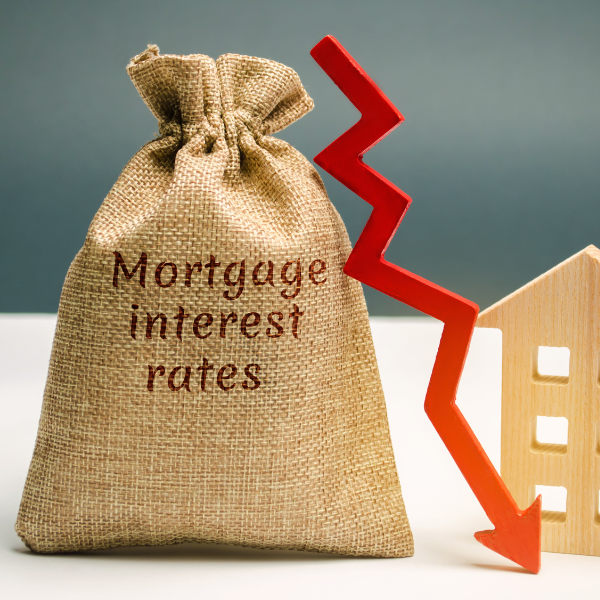
The housing market in France is improving in spite of a difficult first half of the year. As several of the main central banks have started cutting their rates, the mortgage rates are also falling. According to our Spectrum International Mortgages expert Patricia Nadal, the average rate over 20 to 25 years granted in September was around 4.30%, compared to the average of rate for the same length of time in June which was around 4.45%.
The banks are also being more flexible in their requirements for granting mortgages. In the UK even though the Bank of England voted to keep their rate at 5%, mortgage rates have fallen to 4% with some just under this rate.
From 24th October 2024, anyone opening a new French assurance vie or PER will now have the possibility of investing in venture capital investment funds. These are only for those with a balanced risk profile (around 4% of the investment) and adventurous profiles (up to 8% of the assets). There is no obligation to invest in such funds for cautious profiles. For PERs it will depend on the attitude to risk of the policy holder and how long they have until retirement. Also, from the same date, if you have a PER they will now be able to offer more adventurous investment strategies.
Although the weather may be getting cooler and you want to spend more time indoors, if you have any financial questions you would like answering, I would be happy to arrange a video call or I could come and meet you in the comfort of your own homes. Please do get in touch to arrange a time that would suit you best.


